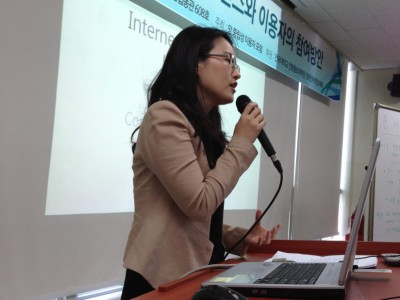Stories about Regulation from January, 2013
Colombia: Copyright Law Rejected by Constitutional Court
On Wednesday night, October 23, 2012, the Colombian Constitutional Court declared unconstitutional Articles 13 and 14 of the Law 1520, better known as Lleras Law 2.0. The proposed law provides for sanctions of online copyright infringement, in accordance with the Free Trade Agreement signed between Columbia and the United States.
South Korea: Stricter Online Games Regulations Face Discontent
The South Korean government in on the offensive against online games addiction. But the policy is increasingly controversial among South Korean youth, says our author Jae Yeon Kim.
South Korea: How to Regain Ownership of the Internet
On January 11, 2012, Network Neutrality Forum, an alliance of South Korean Internet freedom-concerned civic organizations, hosted a public workshop to discuss ways to increase civic participation in global Internet governance. Our author Jae Yeon Kim participated in the meeting and has this report.
South Korea: Public Interest in Internet Governance Issues Rekindled
On January 3, 2013, Creative Commons Korea co-organized a public event on Internet governance entitled “Global Great Power Rivalries on the Internet”. The meeting was especially focused on the outcome of the recent World Conference on Information Technology.
China: Sina Weibo Manager Discloses Internal Censorship Practices
One Sina Weibo manager , frustrated by the pressure from the Propaganda Department imposed upon him and his colleagues, forcing them to censor a controversial editorial, writes an inside story to explain his difficult position.
Zambia: Minister Threatens Editors of Online Watchdog with Treason Charge
A Zambian government minister has allegedly threatened to arrest the editors of the online citizen media newspaper, Zambian Watchdog. The minister is also said to have threatened to charge the editors with treason, a capital crime in Zambia, punishable by death.
South Korea: Perspectives on Chinese New Net Control Laws
On December 28, 2012, the Chinese government approved a set of new net control laws that would make it compulsory for internet intermediaries to enforce users' real name registration. In South Korea, a similar online real name registration policy has been in place since 2005. Let's examine the South Korean experiment and see what lessons Chinese netizens can learn from it.







